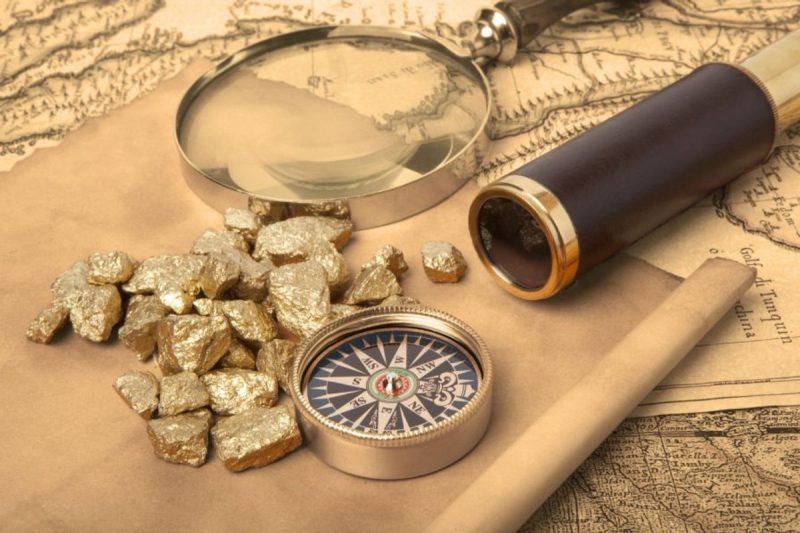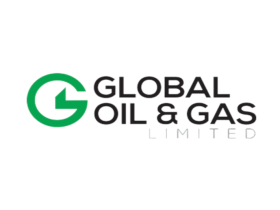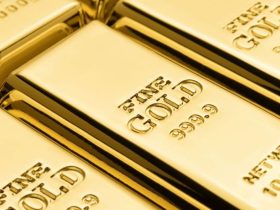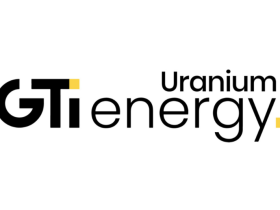The S&P/TSX Venture Composite Index (INDEXTSI:JX) ticked up slightly last week, ending Friday (June 16) at 613.32.
The US Federal Reserve was in focus, announcing on Wednesday (June 14) that it would leave interest rates unchanged at 5 to 5.25 percent. Last week, the Bank of Canada made its first hike since pausing in January.
Against that backdrop, a variety of TSXV-listed resource stocks were on the move last week. Read on to find out which companies rose the most during the five day period and what was affecting their share prices.
1. Kalo Gold (TSXV:KALO)
Weekly gain: 150 percent; market cap: C$10.18 million; current share price: C$0.10
Kalo Gold is focused on its Vatu Aurum gold project, which is located on Fiji’s Vanua Levu island. An ongoing exploration program at Vatu Aurum includes a bulk leach extractable gold sampling program and a stream sediment sampling program.
Last Monday (June 12), Kalo Gold provided an update on exploration, which it says is on schedule and on budget. According to the company, the aforementioned programs have successfully defined a gold trend and identified priority target drainages, respectively. Additionally, Fender Geophysics completed a controlled-source audio-frequency magnetotellurics geophysical survey, another component of the program, last month.
Finally, the company commenced core drilling at the project and has now drilled two holes, with two more planned. Further drill targets will be defined based on results from the ongoing exploration program. Kalo Gold’s share price spiked in the second half of the week and had climbed to C$0.10 by Friday.
2. Rackla Metals (TSXV:RAK)
Weekly gain: 65.22 percent; market cap: C$15.22 million; current share price: C$0.38
Rackla Metals has a portfolio of seven gold projects in the Tombstone gold belt in Canada’s Yukon and Northwest Territories. The most recent addition came in April, when the company staked its new Excite property, which is comprised of 146 quartz claims. The company shared its exploration plans for its Tombstone properties in April, saying it anticipated that work would commence around June 1.
Although Rackla hasn’t released news since late April, its share price rose throughout last week to peak at the end of trading on Friday.
3. Solis Minerals (TSXV:SLMN)
Weekly gain: 57.14 percent; market cap: C$54.42 million; current share price: C$0.88
Solis Minerals is an exploration company focused on battery metals properties in South America. It has a portfolio that includes the Borborema lithium project in Northeast Brazil and copper projects covering a combined 32,400 hectares in Southwest Peru.
The company topped this list last week after its share price jumped from C$0.10 to a high of C$0.65 following a trading pause. During the pause, Solis Minerals entered into a binding option agreement to acquire a 100 percent interest in the Jaguar hard-rock lithium project in Northeast Brazil, which has confirmed spodumene grades of up to 4.95 percent in oxidized pegmatite. It also received commitments totaling AU$8.16 million for a placement that will be used to, among other things, fund drilling at both its lithium projects and complete the fees for the Jaguar acquisition.
Although the company hasn’t released news since then, its share price continued to move upward last week, peaking at C$1.03 during the trading day on Thursday (June 15).
4. RecycLiCo Battery Materials (TSXV:AMY)
Weekly gain: 43.08 percent; market cap: C$114.31 million; current share price: C$0.465
Instead of exploring or mining for battery metals, RecycLiCo Battery Materials has developed a technology that can achieve “up to 99 percent extraction of lithium, cobalt, nickel and manganese” from lithium-ion batteries. The company changed its name from American Manganese last October.
Last Monday, RecycLiCo announced a 50/50 joint venture with Zenith Chemical (HKEX:0362). Together, the companies will create a lithium-ion battery recycling plant in Taiwan with a capacity of 2,000 metric tons per year. The facility, which will use RecycLiCo’s technology, is set to be the first commercial battery metals recycling plant in the world.
The company’s share price spiked up to a weekly high of C$0.58 on Wednesday.
5. Aurania Resources (TSXV:ARU)
Weekly gain: 40 percent; market cap: C$23.29 million; current share price: C$0.42
Aurania Resources is a precious metals and copper exploration company focused on its flagship project, the Lost Cities – Cutucu gold-copper project in Ecuador. Aurania shared its 2023 exploration plans in April.
The company announced the results of its annual and special meeting last Wednesday, at which shareholders approved all resolutions. Additionally, Aurania shared that Dr. Keith Barron, its chairman, president and CEO, has loaned C$2 million to the company to help fund working capital and exploration expenses.
Aurania’s share price rose throughout the week following the news to a peak of C$0.45 on Thursday morning.
FAQs for TSXV stocks
What is the difference between the TSX and TSXV?
The TSX, or Toronto Stock Exchange, is used by senior companies with larger market caps, while the TSXV, or TSX Venture Exchange, is used by smaller-cap companies. Companies listed on the TSXV can graduate to the senior exchange.
How many companies are listed on the TSXV?
As of April 2023, there were 1,713 companies listed on the TSXV, 953 of which were mining companies. Comparatively, the TSX was home to 1,789 companies, with 190 of those being mining companies.
Together the TSX and TSXV host around 40 percent of the world’s public mining companies.
How much does it cost to list on the TSXV?
There are a variety of different fees that companies must pay to list on the TSXV, and according to the exchange, they can vary based on the transaction’s nature and complexity. The listing fee alone will most likely cost between C$10,000 to C$70,000. Accounting and auditing fees could rack up between C$25,000 and C$100,000, while legal fees are expected to be over C$75,000 and an underwriters’ commission may hit up to 12 percent.
The exchange lists a handful of other fees and expenses companies can expect, including but not limited to security commission and transfer agency fees, investor relations costs and director and officer liability insurance.
These are all just for the initial listing, of course. There are ongoing expenses once companies are trading, such as sustaining fees and additional listing fees, plus the costs associated with filing regular reports.
How do you trade on the TSXV?
Investors can trade on the TSXV the way they would trade stocks on any exchange. This means they can use a stock broker or an individual investment account to buy and sell shares of TSXV-listed companies during the exchange’s trading hours.
Data for 5 Top Weekly TSXV Performers articles is retrieved each Friday after market close using TradingView’s stock screener. Only companies with market capitalizations greater than C$10 million prior to the week’s gains are included. Companies within the non-energy minerals and energy minerals are considered.
Securities Disclosure: I, Lauren Kelly, hold no direct investment interest in any company mentioned in this article.
Securities Disclosure: I, Charlotte McLeod, hold no direct investment interest in any company mentioned in this article.






